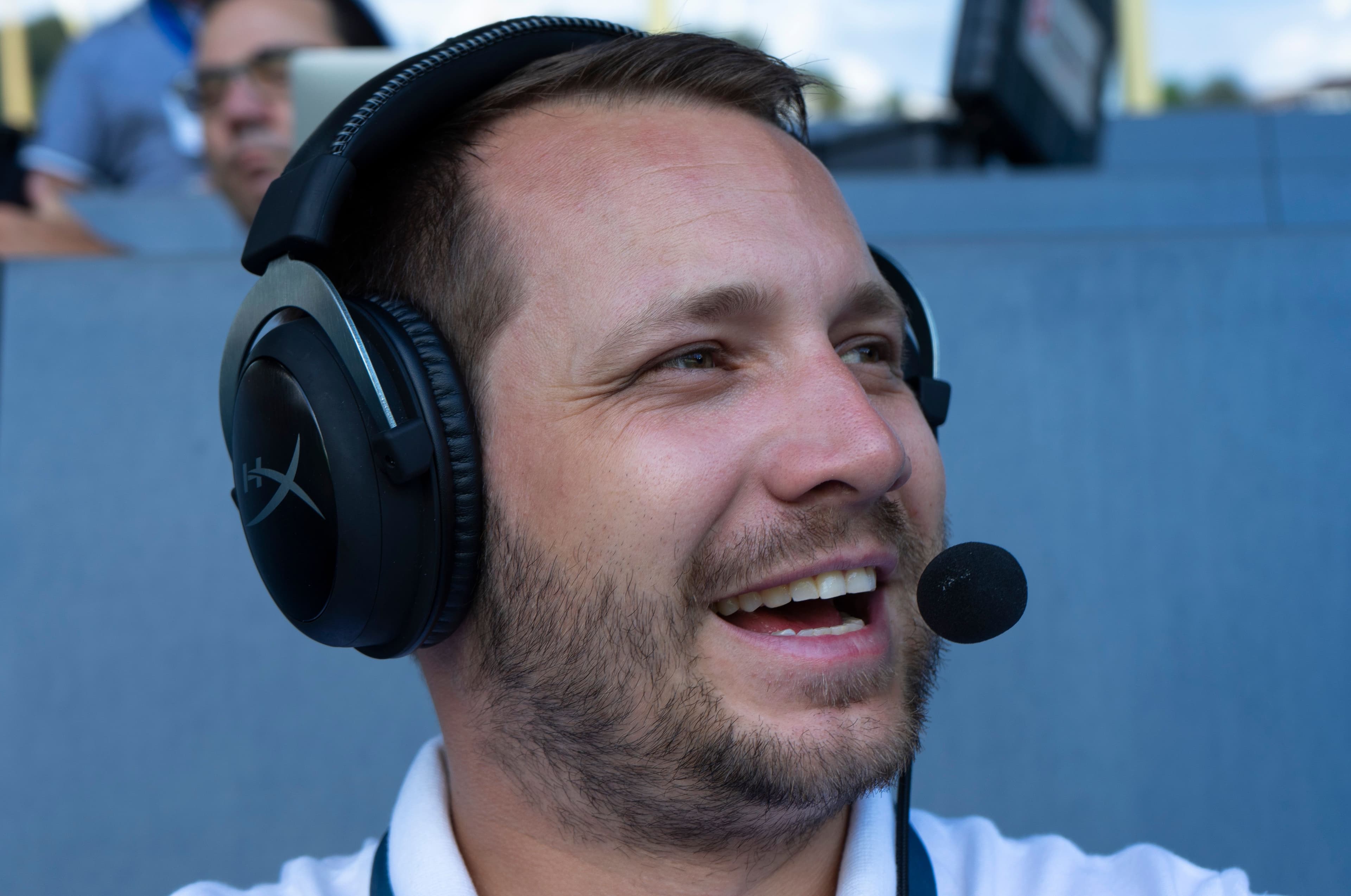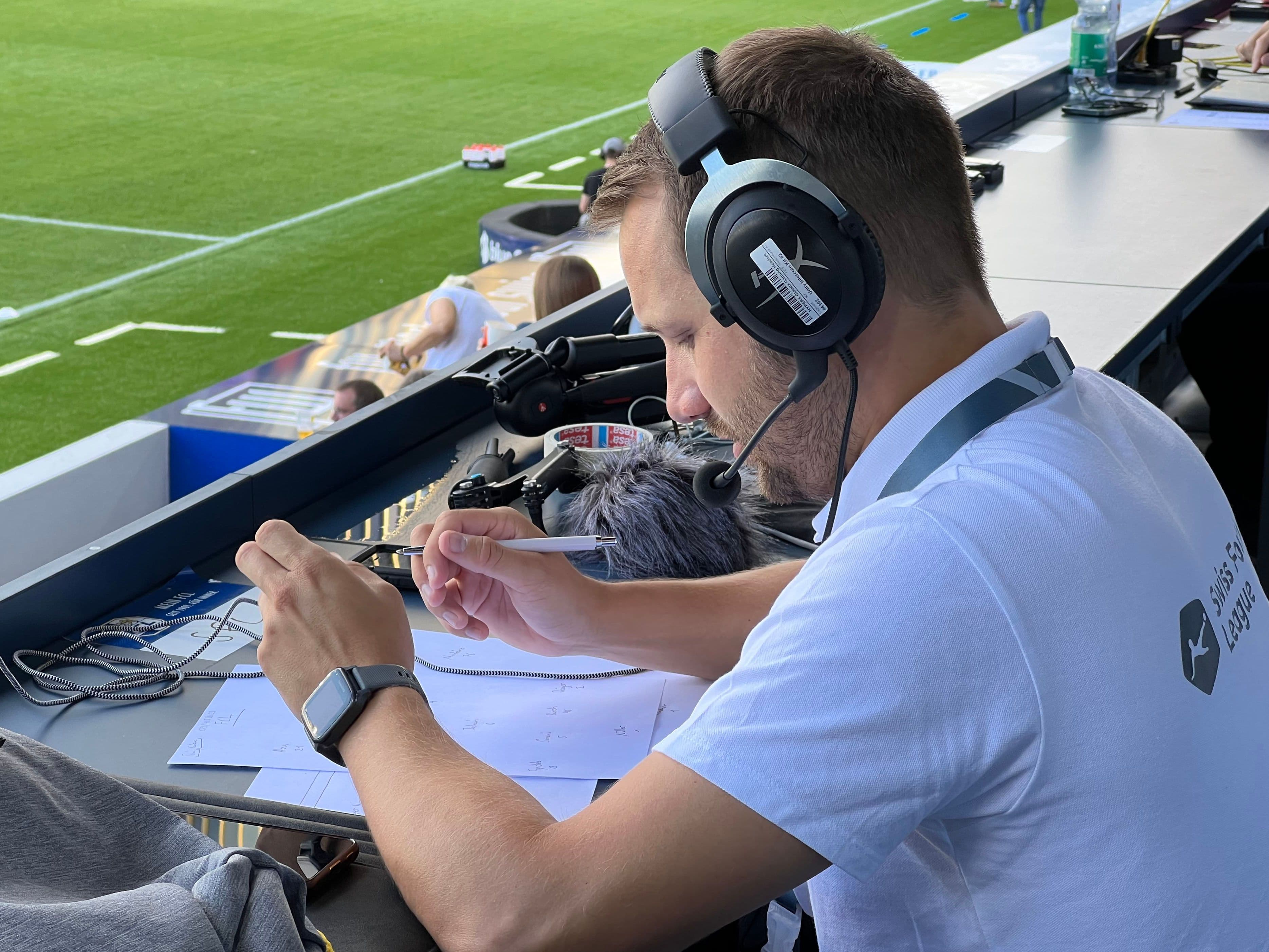Portrait
René Inderbitzin
Shot, keeper, corner right …
René Inderbitzin tells us why you have to be on the ball and pay attention to more than just diving when commentating on a football match. During the 90 minutes of play, he sits at the microphone and keeps track of player’s postures, hairstyles, shoe colours and sock height.

Profession
Process Specialist, Swiss Federal Diploma of Higher Education
Role at TBF
Traction Current Site Manager
With TBF since
2020
René how did you end up sitting here in the press box providing match commentary?
Every football club (from the second highest league up) used to employ a statistician. My local club at the time was no different, and I was immediately interested in this ‘side gig’. Watching football and earning money at the same time makes the whole thing even more fun. I played football from the age of five, and later also became a coach and referee. Football isn’t my life, but I enjoy the many perspectives on the sport that I have had the opportunity to experience – including those from the press box.
You are a football statistician. What does this role involve?
During a broadcast to the DataCenter, I mention everything that happens out on the pitch, without exception: every touch of the ball, pass, tackle or shot, and also any violations of the rules, yellow and red cards, and substitutions. It’s quite tiring to stay fully focused for 90 minutes and to do the whole thing in English. We have a guide that explains how to describe each situation, and I’m still learning from this. Teams can access the statistics, evaluate them and use them to identify what they need to work on in training.
Details are what decide the outcome of football matches, and that’s why statistics are so important. At the end of a match, I discuss any questions or uncertainties with the referee. I want to make sure that it wasn’t just me who perceived a situation a certain way, since incorrectly recorded substitutions or instances of players being booked would be devastating for everyone involved (referees, statisticians, players and the association).
What are the challenges?
Being accurate and, above all, remaining neutral is very important. Commentating on everything you observe, maintaining radio discipline, always ‘being on the ball’ – even during a boring match – and being ready for things to change in the blink of an eye.
In order to commentate quickly, you have to concentrate on the match. And if you know the players in each match, the whole thing is much easier. Various characteristics help you to recognise them: their posture, their hairstyle, their shoes or how they wear their socks. In a twenty minutes comparison between two people (one with and one without knowledge of the players), up to 800 more situations could be described by the person who had player knowledge. Quick perception and the ability to immediately record what happens during the match are also important skills in this job.
What do you take away from this side gig?
The emotions you experience – from the lowest of lows to the highest of highs, from disappointment to jubilation. Once, in the same match, one team was relegated and the other promoted – what incredibly contrasting emotions. This can sometimes result in a tense atmosphere, but the situation soon calms down again.
The highlight is walking across the pitch shortly after the match, between the teams and through the players’ tunnel to the dressing rooms to confer with the referees. In my conversations with the other people involved, I also learn personal stories that you wouldn’t normally hear. It’s exciting to hear how they prepare themselves, how professionally they perform their role and how they balance it all with their main job. For instance, how do referees handle the emotions of a football match? Thanks to my job, I’m privy to background information that the public never gets to hear.

